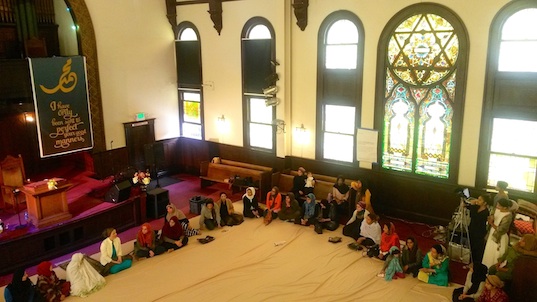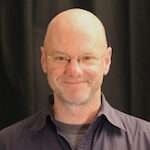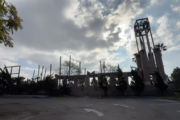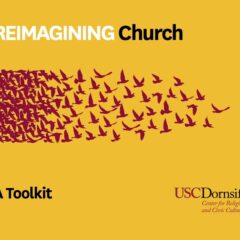This post originally appeared on Al Jazeera America.
The first women-only mosque in the United States opened its doors in Los Angeles on Friday with an inaugural jummah, or prayer, by Edina Lekovic of the Muslim Public Affairs Council. The mosque is housed in a century-old multifaith worship space near downtown. Originally built as a synagogue, Pico-Union is now the home of the nonprofit Women’s Mosque of America as well as several Jewish and Christian groups.
Even as the boards of directors at many American mosques are becoming more welcoming to women, the relegation of Muslim women to basements, balconies and other less desirable spaces in their houses of worship remains a common practice. That second-class status is the main force behind the founding of the Women’s Mosque.
While a mosque solely for women is a novelty among the roughly 2,000 mosques in the United States, mosques for each sex have long flourished in other parts of the world. The young American Muslims behind the Women’s Mosque are working to counter cultural practices that marginalize women, by linking their effort with established Muslim traditions and helping the disaffected reconnect with their faith. There is no requirement that worshipers wear headscarves, welcoming women “in the type and style of clothing in which they feel comfortable.”
The desire to nurture that faith is what motivates Sana Muttalib, an attorney specializing in international anticorruption law and a co-president of the Women’s Mosque, along with M. Hasna Maznavi, a comedy writer and director. Muttalib’s understanding of Islam was shaped by a belief in women’s equality from a very young age, she said. “The stories my mother taught me from the Quran were all about equality. When I grew up and realized that isn’t always the reality that plays out in society, I was shocked. It really caused me to have a crisis of faith.”
She said she began to rekindle her faith in law school, where she took a constitutional law class and an Islamic law class in the same term. “I reconnected with the Quran and realized what was there and wasn’t there in terms of empowering women,” she said. “Before I die, I wanted to help the real Islam be lived in society. I had been looking for a way to do that.”
In an interview the day before she delivered her khutba, or sermon, at the opening of the Women’s Mosque, Lekovic described a similar aspiration.
“In mainstream mosques, women’s issues are usually a sideshow,” she said. “Our intention is to help women read the Quran and interpret the scriptures and tradition for themselves. We’re doing this with an eye on empowering women to serve the broader Muslim community.”
Lekovic emphasized that the point of the mosque’s educational programs — which are co-ed — and its monthly women-only jummah is to enrich existing Muslim American institutions rather than subvert or abandon them.
“Some of the pushback we’ve gotten is the idea that we’re just trying to isolate women,” she said. “We see what we’re doing as complementary, not competitive.”
Speaking before the start of last Friday’s prayer, Kameelah Wilkerson, an administrator with a child welfare organization, echoed that aim. “I have a home mosque in Altadena, which I’m very involved with,” she said. “I’ll maintain my involvement there. But the bigger picture is so important — to give women a voice and a space to exercise that voice.”
She added that she sees her engagement in both communities as part of a larger and potentially transformative relationship between the Women’s Mosque and the other Muslim institutions with which its participants are connected.
“In my home community I’m a member of the board of directors,” she said. “It’s very welcoming to women, but it’s not very large, and the spaces are not equitable. I would like to see this movement energize both men and women to make spaces more equitable across the Muslim community.”
One way the new mosque is doing that is by holding a question-and-answer session about the khutba immediately after the jummah. About 100 women sat in a circle on the floor with Lekovic. For many of them, having direct access to her was an unprecedented experience. A comment from a woman who said that it was a pleasant change to be able to see and hear the person who gave the sermon without looking at a TV screen elicited cheers and applause.
Several women said they hope to see the fledging organization transform the way Muslim institutions in the U.S. respond to broader issues in American culture.
“Mosques in America are generally very Old World,” said Sarah Usmen, who works in TV and film production. “You go there to pray, and maybe there’s a lecture about not wearing a headscarf, and that’s the range. I would love to see a lot of different projects grow out of the networks that are formed here. Whether it’s social justice projects or environmental projects — just taking faith into the real world and actually engaging society.”
The creative tension between the desire to reclaim the roots of their tradition on the one hand and to transform the contemporary expression of American Islam on the other is the primary influence for the movement behind the Women’s Mosque.
“There’s nothing really radical about having an all-female space where the people praying are all women, being led by a woman and the sermon is given by a woman,” said Ruqayya Khan, chairwoman of the Islamic studies program at Claremont Graduate University. “In fact, Islamic law stipulates that the only kind of prayer women can lead is if the congregation is all women. What happened in New York in 2005” — when the controversial scholar Amina Wadud led a mixed-gender congregation in prayers — “was much more radical and provocative.”
Still, Khan sees the keen focus on the cultivation of women’s leadership at the mosque as a subtle but potentially transformative force in American Islam.
“What is significant is the sense of women taking ownership of their religious tradition,” she said. “So the Women’s Mosque is an interesting combination of not radical and yet radical. They’re not abandoning their mosques or leaving their husbands.” But it could encourage women to take a more active part in public life and cultivate innovative thinking. “In that sense, it’s a moment to notice and a movement to watch.”
Nick Street was a senior writer with the USC Center for Religion and Civic Culture.






